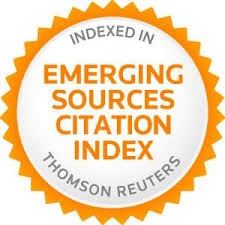Educación compensatoria. Aprendizaje temprano, éxito posterior (II: El Carolina Abecedarian Project)
Resumen
Palabras clave
Texto completo:
PDFReferencias
Burchinal, M., Marvin, L., & Ramey, Craig T. (1989). Type of Daycare and Preschool Intellectual Development in Disadvantaged Children. Child Development, 60, 128–137.
http://dx.doi.org/10.2307/1131078
Campbell, Frances A., & Ramey, Craig T. (1995). Cognitive and School Outcomes for High-Risk African-American Students at Middle Adolescence: Positive Effects of Early Intervention. American Educational Research Journal, 32(4), 743–772.
http://dx.doi.org/10.3102/00028312032004743
Campbell, Frances A., & Ramey, Craig T. (1994). Effects of Early Intervention on Intellectual and Academic Achievement: A Follow-up Study of Children Infrom Low-Income Families. Child Development, 65, 684-698.
http://dx.doi.org/10.2307/1131410
Campbell, Frances A., Ramey, Craig T., Pungello, E., Sparling, Joseph & Miller-Johnson, Shari (2002). Early Childhood Ed-ucation: Young Adult Outcomes from the Abecedarian Project. Applied Developmental Science, 6(1) 42–57.
http://dx.doi.org/10.1207/S1532480XADS0601_05
Clarke, Stevens H., & Campbell, Frances A. (1998). Can Intervention Early Prevent Crime Later? The Abecedarian Project Compared with Other Programs. Early Childhood Research Quarterly, 13(2), 31–343.
http://dx.doi.org/10.1016/S0885-2006(99)80042-8
Horacek, H. Joseph., Ramey, Craig T., Campbell, Frances A., Hoffmann, Kathleen P. & Fletcher, Robert H. (1987). Predicting School Failure and Assessing Early Intervention with High-Risk Children. American Academy of Child and Adolescent Psychiatry, 26, 758–763.
http://dx.doi.org/10.1097/00004583-198709000-00024
Hunt, J. M. (1969). Has compensatory education failed ? Has it been attempted?. Harvard Educational Review, 39(1), 279-3OO.
Jensen, A. R. (1969). How much can we boost IQ and scholastic achievement?. Harvard Educational Review, 39(1), 1-123.
Lafuente Benaches, M.J. (2003). Intervención prenatal (Cap.4:, pp. 73-100). En A. Gómez Artiga, P. Viguer Seguí y M. J. Can-tero López (Coords.), Intervención temprana. Desarrollo óptimo de 0 a 6 a-os. Ma-drid: Pirámide.
López López, Eduardo (2006). Educación compensatoria: efectos recientes de un estudio clásico (High/Scope). RELIEVE, v. 12, n. 1. Consultado el 16 de enero de 2006. http://www.uv.es/RELIEVE/v12n1/RELIEVEv12n1_5.htm.
Martin, Sandra L., Ramey, Craig T. & Ramey, Sharon (1990). The Prevention of Intellectual Impairment in Children of Impoverished Families: Findings of a Randomized Trial of Educational Day Care, American Journal of Public Health, 80(7), 844–847.
http://dx.doi.org/10.2105/AJPH.80.7.844
Ramey, Craig T., & Campbell, Frances A. (1994). Poverty, Early Childhood Education, and Academic Competence: The Abecedarian Experiment. En Aletha C. Huston (Ed), Children in Poverty: Child Develop-ment and Public Policy. New York: Cam-bridge University Press, pp. 190-221.
Ramey, Craig T., & Campbell, Frances A. (1984). Preventive Education for High-Risk Children: Cognitive Consequences of the Carolina Abecedarian Project. American Journal of Mental Deficiency, 88(5), 515–523.
Enlaces refback
- No hay ningún enlace refback.


